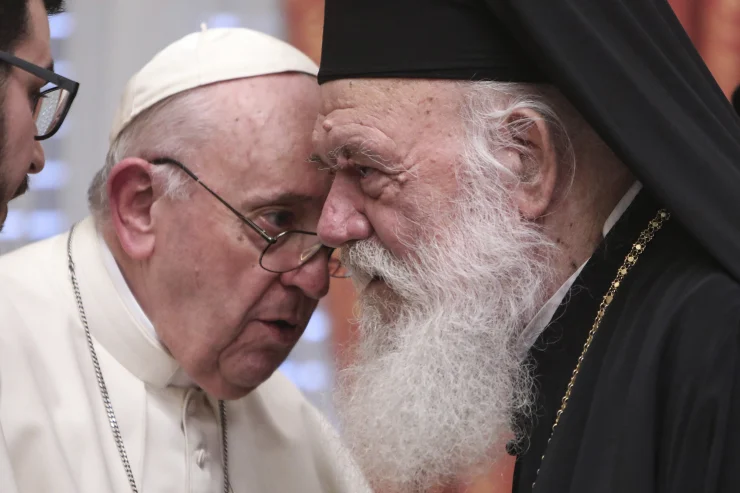
Pope Francis has announced he will return to Greece three fragments of the Parthenon Marbles that have been held in the Vatican for centuries. The surprise announcement was likely to intensify pressure on the British Museum in London to return its large collection of Parthenon friezes to Athens.
The Vatican is not returning the marble fragments to the Greek state, but to the head of the Greek Orthodox Church, Archbishop Ieronymos II.
The Holy See gave no timetable for the handover nor an indication of whether the archbishop would be expected to hand over the fragments to the rest of the Greek collection in Athens. The decision was intended by the Holy See to be “a concrete sign” of ecumenical friendship between the two Churches, the Vatican said.
It noted that the three fragments had been “held with care for centuries in the Vatican Museums and shown to millions of visitors from all over the world”.
The sculptures include a horse’s head, the head of a boy, and the head of a bearded male. The Parthenon Marbles, known in Britain as the Elgin Marbles, are sculptured friezes that ran around the outer walls of the Parthenon Temple, which sits on top of the rocky outcrop known as the Acropolis in the heart of Athens. The temple was built between 447BC and 432BC and was dedicated to the goddess, Athena.

The marble head of a young man, a tiny fragment from the 2500-year-old sculptured decoration of the Parthenon Temple on the ancient Acropolis, that Pope Francis announced in 2008 would be sent back to Greece from the Vatican Museums.Credit:AP
The Elgin Marbles were acquired by Lord Elgin, at the time a diplomat to the Ottoman Empire, in the early 19th century.
Greece has long called for the British Museum to return its collection, which would join the friezes owned by the Greeks in a modernist museum at the foot of the Acropolis. The Greek media recently reported that George Osborne, the chairman of the British Museum, held secret talks with Kyriakos Mitsotakis, the Greek prime minister, over the return of the marbles.
The British Museum did not deny that talks had taken place but said it was not about to “dismantle” its collection of artistic treasures.
The museum said in a statement: “We operate within the law and we’re not going to dismantle our great collection as it tells a unique story of our common humanity. But we are seeking new, positive, long-term partnerships with countries and communities around the world, and that of course includes Greece.”

Women stand by a marble statue of a naked youth thought to represent Greek god Dionysos (centre) from the east pediment of the Parthenon at the British Museum in London in 2015.Credit:AP
In July, Jonathan Williams, the museum’s deputy director, said the institution wanted to “change the temperature of the debate” around the ancient sculptures.
Reacting to the news from the Vatican, Lord Vaizey, the former culture minister, said: “Today’s news brings us a step closer to seeing the Parthenon Sculptures reunified as one piece of art.”
Via BRISBANE TIMES










